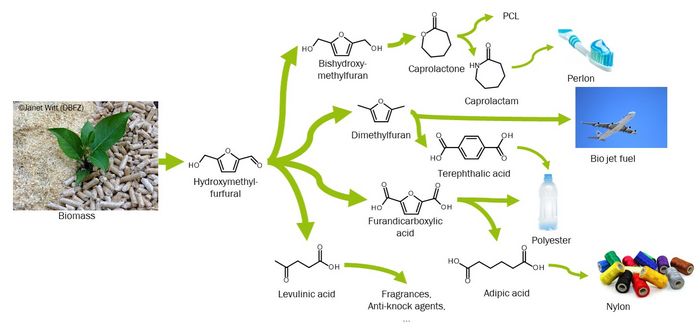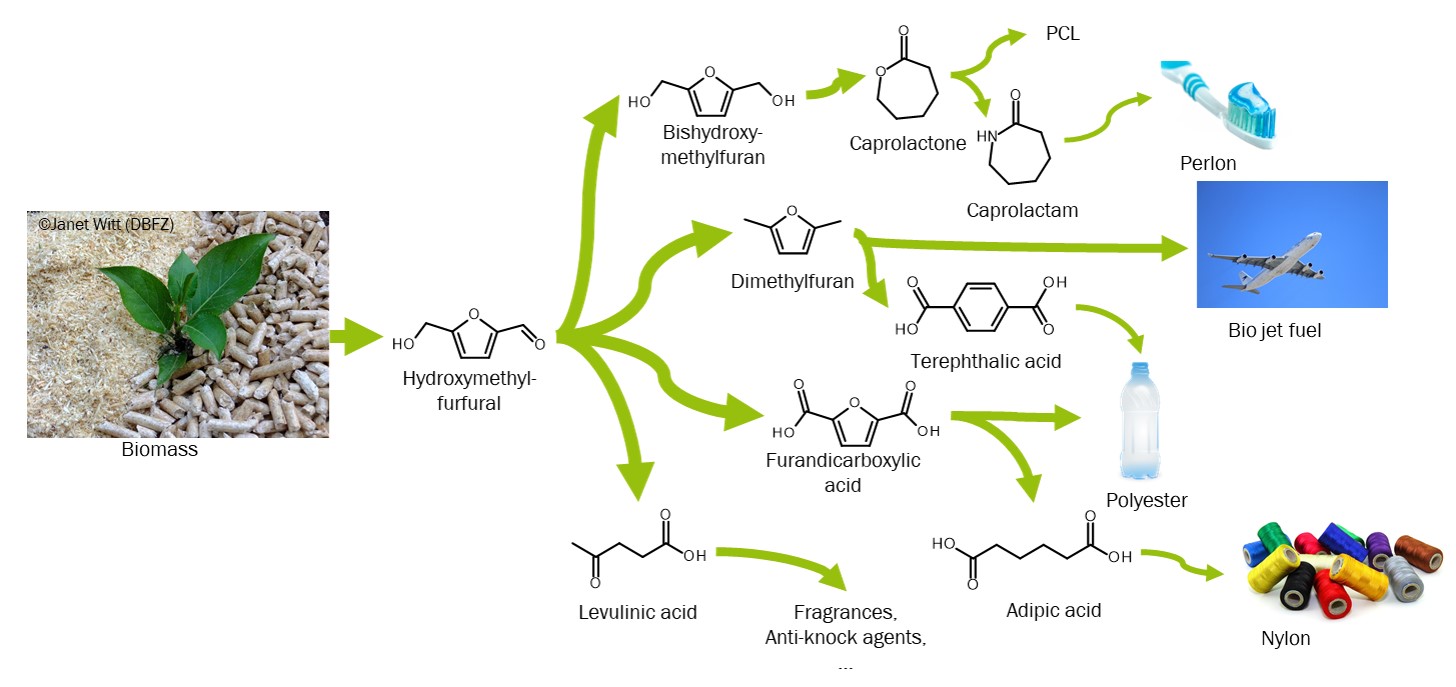Chemicals & fuels
A considerable proportion of the products used in our everyday lives are chemical products. The majority of those is based on a small number of so-called basic chemicals. Many of these basic chemicals are nowadays produced from fossil or mineral resources. Because these resources are diminishing and their exploitation is often harmful to the environment and climate, renewable resources are an important alternative source of basic chemicals.
In recent years, numerous process approaches have been developed to convert renewable resources into bio-based chemicals. Many of them use organic solvents or ionic liquids to achieve high yields. However, the disadvantage of such solvents is their potential danger and often also their price. Hydrothermal processes (HTP) on the other hand simply use water. In particular, carbohydrates contained in biomass, such as cellulose or hemicellulose, can be converted into furfural, 5-hydroxymethylfurfural (HMF) or levulinic acid via HTP. From these bio-based basic chemicals, plastics, fine chemicals, fuels and additives can be produced in subsequent processes. Fuels can also be produced in other ways via HTP, for example by gasification of hydrochar.
Copyright: © Körner, DBFZ

